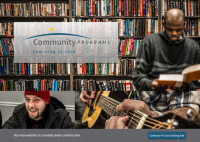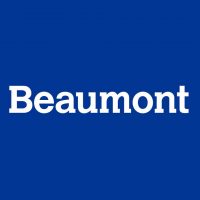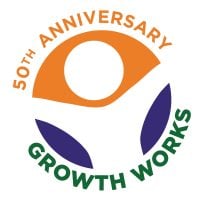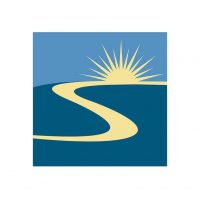
Community Programs - Redford
Drug Rehab Center in Redford, Michigan
- Opioid Addiction
- Dual Diagnosis
- Drug Addiction
- Alcoholism
Community Programs - Redford is a Michigan-based treatment facility that offers a comprehensive approach to care for individuals struggling with addiction and substance abuse, including inpatient and outpatient programs, therapy options, medication-assisted therapies, and support groups.
Multiple patients have reported Community Programs - Redford as permanently closed.
Research other rehabs in Redford, Michigan, or get help finding an open facility.
Our experts will find you an alternative facility.
(888) 674-0062 24/7 Free, Confidential, Expert HotlineAbout This Michigan Facility
Community Programs, located in Redford, Michigan, offers outpatient services for individuals struggling with substance abuse or sexual offenses. Utilizing a Cognitive Behavioral Therapy model, the facility provides personalized treatment plans tailored to each client's unique needs.
• Comprehensive assessments and pre-treatment sessions determine the appropriate level of care for each individual
• Treatment consists of both group and individual tracks, addressing specific issues and challenges
• Topics covered include cognitive distortions, negative thoughts and behaviors, addiction and criminal behavior cycles, and relapse prevention
• Family counseling is not currently offered as part of the outpatient program
Community Programs is licensed and certified by the Michigan Department of Health and Human Services and holds accreditation from the Commission on Accreditation of Rehabilitation Facilities (CARF). This ensures that the facility adheres to the highest standards of care and maintains a stringent quality assurance program.
The outpatient program at Community Programs addresses a range of substance abuse issues and sexual offenses. Treatment methods include Cognitive Behavioral Therapy, group therapy, and individual counseling sessions, all designed to help clients develop the skills and strategies necessary for long-term recovery and rehabilitation.
Genders
Ages
Modality
Additional
Accreditations

CARF
The Commission on Accreditation of Rehabilitation Facilities (CARF) is a non-profit organization that specifically accredits rehab organizations. Founded in 1966, CARF's, mission is to help service providers like rehab facilities maintain high standards of care.
Conditions and Issues Treated
Opioid abuse has become a national epidemic in the last decade. The US has one of the world’s highest rates of opioid use and abuse, as well as opioid-related deaths. Opioids are classified as Schedule II-IV controlled substances in the US due to their high potential for abuse.
Oxycodone, hydrocodone, methadone, and fentanyl are the most common Opioids and are commonly prescribed to treat pain. Tolerance to opioids develops over time, making life difficult, if not impossible, without them. Opioid users often obtain the drugs illegally. They can be drug dealers, friends, or family members who do not have valid prescriptions.
The desire for a more intense high than prescription opioids can quickly lead to heroin use. Heroin users are more prone to illness and death due to the high risk of overdose.
Many opioid addicts who seek treatment believe that the only way to overcome their addiction is through medical detox and long-term drug addiction rehab. To help patients wean off their addiction and reduce the risk of overdose, medication-assisted therapy (MAT) involves prescribing a replacement opioid. Doctors use MAT in conjunction with other anti-craving medications to help patients maintain recovery. Due to the high risk of relapse, MAT is often combined with individual and group counseling and social support programs.
Levels of Care Offered at Community Programs - Redford
This center offers a variety of custom treatment tailored to individual recovery. Currently available are Drug Rehab, Outpatient, with additional therapies available as listed below.
An outpatient treatment program is set up to help with alcohol or drug addiction or a co-occurring disorder. The patient must attend the facility for their therapy and other programs but can return home each night.
The frequency of mandatory attendance decreases after much of Community Programs - Redford‘s program is complete.
Outpatient treatment is a recovery approach that allows recovering addicts to live at home while getting rehab for addiction
An outpatient can include day treatments which include attending group sessions one hour per week. A person living in an outpatient environment may be allowed the opportunity to work full time if they choose to and continue studies without interruption from drugs/alcohol.
Outpatient treatment is an option for people who want to maintain their careers and families. Outpatients live at home but attend treatment such as individual counseling, group counseling, or twelve-step meetings during the day.
Therapies & Programs
At Community Programs - Redford , to learn from past mistakes and improve one’s situation, the recovering person meets individually with a therapist. The counselor or therapist will address addiction causes, triggers, mental issues, dual diagnosis, and aftercare plans during this time. This is a very intense and challenging process. Some clients find it easier to open up to someone other than family or friends who understand their struggles with addiction.
In group therapy, recovering addicts meet with a therapist and other people in recovery. Some groups are closed, meaning only people who share the same addiction or problem can attend. Others are open to anyone who wants to stop using drugs or drinking alcohol. Group therapy sessions typically focus on one topic each week or month so that recovering addicts can discuss issues they face daily.
Dialectical Behavior Therapy (DBT) is a type of therapy created in the late 1980s and early 1990s. It was designed to help people with high rates of suicidal behavior.
The goal of DBT is to teach mindfulness, distress tolerance, emotion regulation, and interpersonal effectiveness to help people learn how to live a life that is no longer controlled by overwhelming emotions and urges.
DBT is beneficial in treating drug addiction because it helps patients understand and cope with their cravings for drugs or alcohol rather than turning to those substances as a way of coping.
Cognitive Behavioral Therapy (CBT) is based on the idea that how we feel, think and act all interact together. It helps people explore their thoughts for problems (or false beliefs) that influence their mood and actions. CBT is very goal-oriented, which means that the therapist and patient work together on a specific problem. In addition to helping a client focus on thoughts that can be changed, CBT also allows them to take an active role in their treatment. Our thoughts determine our feelings and behaviors; our feelings affect our thoughts, and our behaviors change our thoughts and feelings.
Payment Options Accepted
For specific insurance or payment methods please contact us.
Additional Details
Specifics, location, and helpful extra information.
Redford, Michigan 48239 Phone Number(248) 406-0104 Meta DetailsUpdated April 15, 2024
Staff Verified
Patient Reviews
There are no reviews yet. Be the first one to write one.
Redford, Michigan Addiction Information
Michigan has the second-highest rate of drug and alcohol abuse in the nation. Heroin is linked to more than 50% of the state's hepatitis C cases. Marijuana is the drug most often associated with crimes in Michigan, followed by methamphetamines. Opioids alone are responsible for almost 20% of all drug overdose deaths in Michigan.
The most commonly abused drugs in Redford, Michigan are heroin, prescription painkillers, cocaine, and methamphetamines. Opioids are responsible for 16% of overdose deaths in the city. Fentanyl is 50 to 100 times more potent than morphine and its use has increased by 80% from 2008 to 2018. 37% of people who abuse cocaine have anxiety, psychosis, and cardiovascular problems. Some of the treatments include inpatient rehab, outpatient rehab, and 12-step programs.
Treatment in Nearby Cities
- Plymouth, MI (9.7 mi.)
- Hancock, MI (417.6 mi.)
- Portland, MI (88.8 mi.)
- Dowagiac, MI (147.5 mi.)
- Roscommon, MI (159.3 mi.)
Centers near Community Programs - Redford



The facility name, logo and brand are the property and registered trademarks of Community Programs - Redford, and are being used for identification and informational purposes only. Use of these names, logos and brands shall not imply endorsement. RehabNow.org is not affiliated with or sponsored by Community Programs - Redford.




